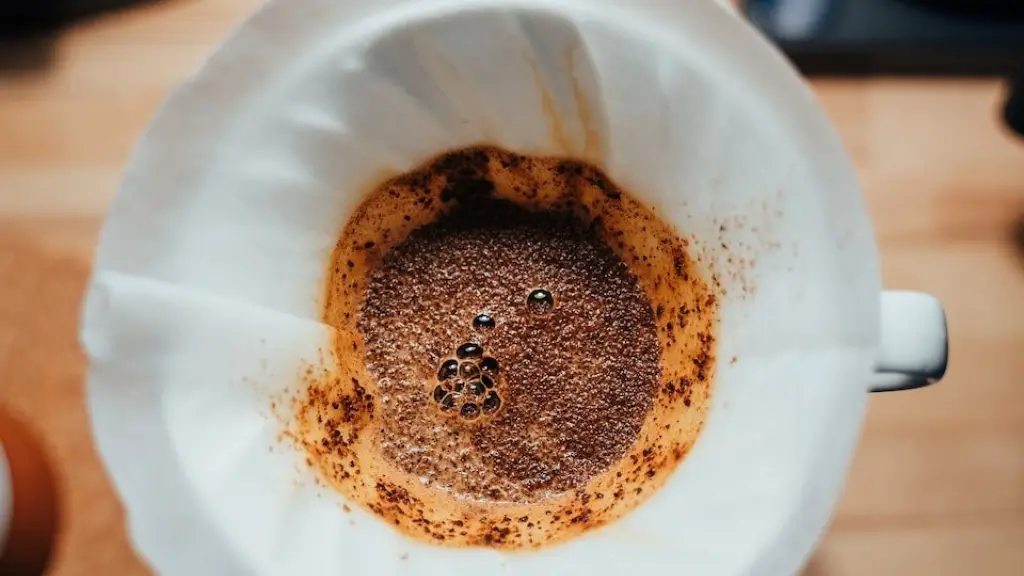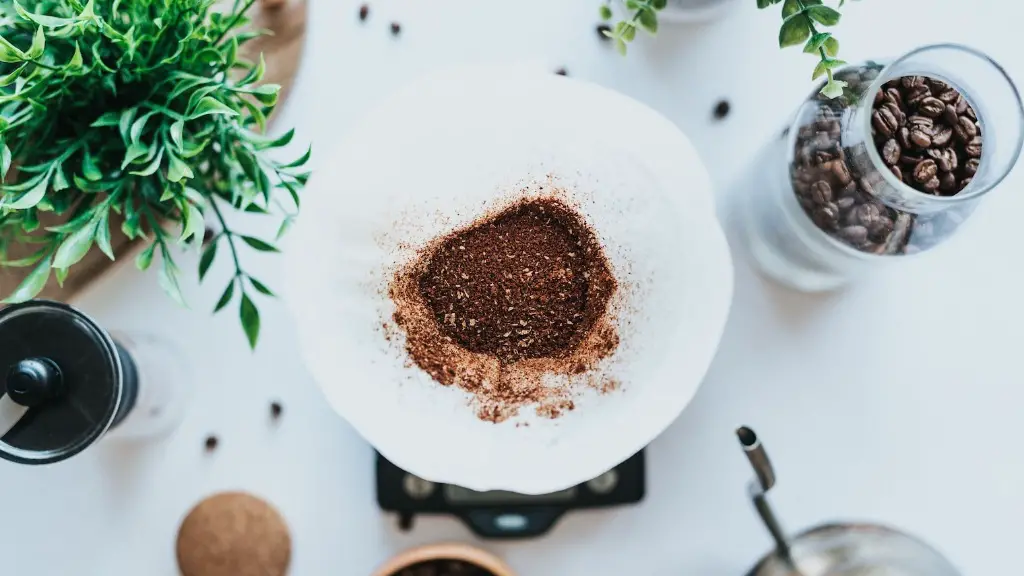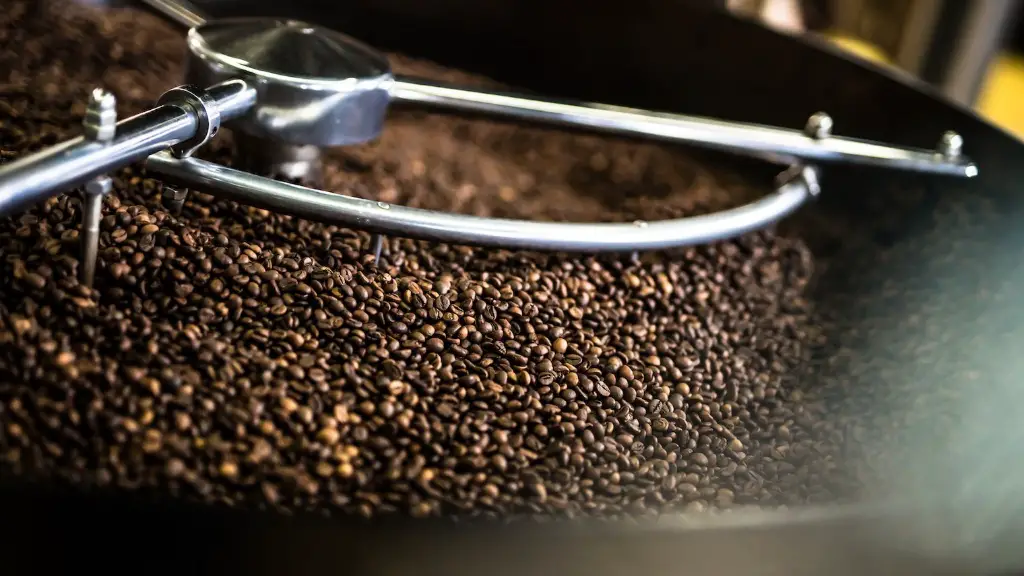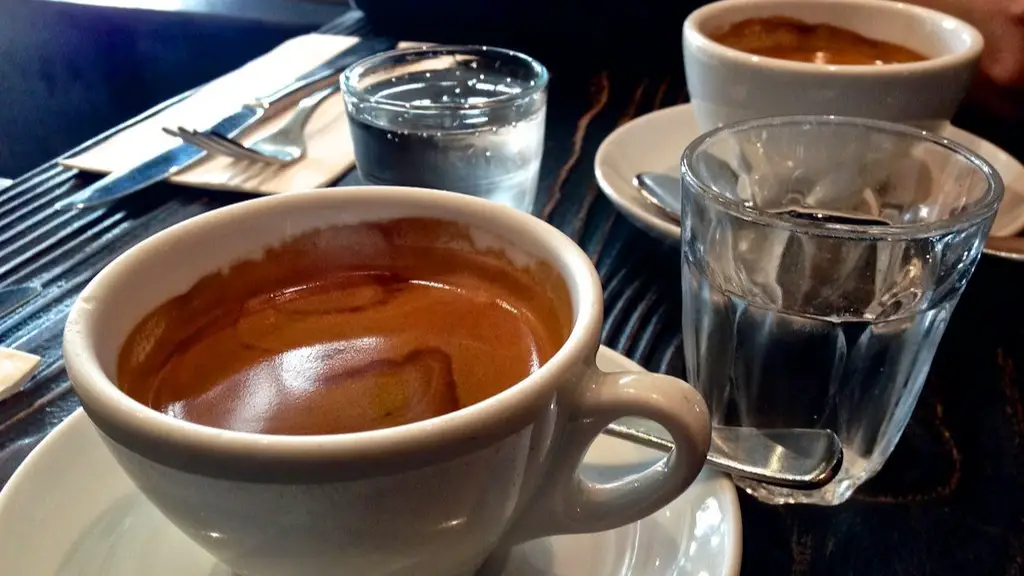Coffee has been a favorite beverage for centuries and has become the morning ritual for many. Decaf coffee, made by removing the caffeine from the beans, has been popular in recent years. For people with gastroesophageal reflux disease (GERD) or Barrett’s esophagus, the question of drinking decaf coffee is a bit more complicated.
Barrett’s esophagus is a digestive disorder in which the normal cells of the esophagus are replaced by abnormal cell growth. This can be caused by prolonged acid injury from GERD and can create complications related to GERD an increased risk for esophageal cancer. To reduce the risk of these complications, medical experts recommend avoiding foods and beverages that increase risk of acid reflux, including any drinks containing caffeine.
However, recent research has found that decaf coffee might be a healthier option for Barrett’s esophagus patients. In one study, patients with Barrett’s esophagus were asked to drink either regular or decaffeinated coffee. The study found that drinking decaffeinated coffee did not significantly increase the symptoms of acid reflux in these patients. It concluded that drinking decaffeinated coffee may be a safe option for Barrett’s esophagus patients, whereas drinking regular coffee is not.
Since the study did not include other types of caffeinated beverages, such as tea or soda, medical experts caution patients with Barrett’s esophagus to still avoid drinks that contain caffeine. However, some experts suggest that those with Barrett’s esophagus may be able to safely consume small amounts of decaffeinated coffee.
In addition to acid reflux, drinking coffee is associated with other health benefits. For example, coffee is a rich source of antioxidants and polyphenols, compounds that have been linked to health benefits such as reducing inflammation, lowering cholesterol levels, and improving heart health. Decaffeinated coffee has the same benefits, but with less caffeine, which can help limit the acidity and potential symptoms of acid reflux.
It is important to note that the effects of coffee and other caffeinated drinks on Barrett’s esophagus can vary from person to person. Furthermore, coffee can affect a person’s sleep patterns, which may exacerbate the symptoms of Barrett’s esophagus. Therefore, medical experts recommend consulting with your doctor if you are considering drinking decaffeinated coffee and to discuss any other dietary and lifestyle modifications that may be beneficial.
The Chemical Composition of Coffee
The chemical composition of coffee is complex and can vary depending on the origin, roasting process, and brewing method. Generally, coffee is made up of four main ingredients: caffeine, chlorogenic acids, trigonelline, and cafestol. Caffeine is the stimulant, chlorogenic acids are antioxidants, trigonelline adds flavor, and cafestol contributes to the body and richness of the cup.
Decaffeinated coffee is made by either chemically removing the caffeine from the beans or steaming the beans to remove the caffeine content. The process of removing the caffeine often includes the use of chemicals, such as ethyl acetate or methylene chloride, which can still remain in the decaffeinated coffee. Although the amounts of these chemicals found in decaffeinated coffee are minimal and likely not a cause for health concern, some people may prefer to avoid them.
Decaffeinated coffee can be a viable option for those with Barrett’s esophagus, although the effects of caffeine-free coffee on this condition can vary from person to person. Additionally, to minimize symptoms and avoid further complications, patients should still follow the recommended lifestyle and dietary modifications for Barrett’s esophagus.
The Benefits of Coffee Substitutes
Coffee substitutes are a great alternative for those wanting to cut back on their caffeine intake or switch up their morning ritual. These substitutes are made from a variety of plants and grains, such as barley, wheat, oats, and even chicory root. These substitutes can offer the same richness and flavor of coffee, without the caffeine content.
Coffee substitutes are also a great option for those wanting to experience the benefits of coffee but are unable to due to the acidity or potential complications of drinking coffee. While coffee substitutes do not offer the same health benefits as coffee, many of these substitutes can still be a great alternative. For example, chicory root is rich in inulin, a prebiotic responsible for improving gut health. Additionally, roasted barley, which can substitute for coffee, is high in fiber and minerals.
Whether coffee or coffee substitutes, those with Barrett’s esophagus seeking to enjoy the flavorful beverage without exacerbating their symptoms should speak to their doctor before making any dietary modifications.
Herbal Beverages as Alternatives to Coffee
Herbal beverages are another great alternative for people who want to avoid coffee due to the acidity and caffeine. Herbal teas contain various plants and herbs that naturally promote health and wellness, such as ginger and turmeric. Herbal beverages are an excellent way to get a flavorful and caffeine-free drink.
Herbal teas are also very affordable and easy to make, with a variety of flavors available on the market. These teas provide numerous benefits and can also help to reduce inflammation and improve digestive health. Additionally, there are many medicinal herbs and plants, such as chamomile, lavender, and peppermint, that can be added to herbal teas to support health and prevent disease.
While herbal beverages can be a great alternative to coffee, it is important to note that some of the herbs used in herbal teas can interact negatively with certain medications or have other potential side effects. Therefore, those with Barrett’s esophagus should consult with their doctor before consuming any herbal products.
Alternative Ways to Prepare Coffee
Coffee can also be prepared in alternative ways that may reduce the acidity or potential complications of drinking coffee. For example, cold-brew coffee is a popular way to make coffee that produces a richer and less acidic flavor than hot coffee. Additionally, French press coffee is often considered a better way to prepare coffee than traditional drip machines, as the coffee grounds are left in the coffee, resulting in a richer but less acidic coffee.
For those with Barrett’s esophagus, cold-brew and French press coffee can be a great option for enjoying coffee without increasing the symptoms of acid reflux. Additionally, these alternatives can also offer more flavor and richness than traditional drip coffee.
Coffee can also be decaffeinated through the Swiss water process, which uses water to extract the caffeine from the beans, resulting in a pure and caffeine-free cup of coffee. This method uses natural processes and does not rely on chemical solvents, making it a great option for those looking to enjoy the flavor of coffee without the potential complications.
The Impact on Sleep
Drinking coffee, regardless of whether it is caffeinated or not, can have an effect on a person’s sleep pattern. Caffeine is known to be a stimulant and can lead to difficulty falling or staying asleep. Additionally, the acidity of coffee can also lead to an upset stomach and other digestive issues that can affect sleep.
For people with Barrett’s esophagus, these issues can be exacerbated due to the digestive issues the condition causes. Therefore, those with Barrett’s should monitor their sleep closely and ensure they are getting enough rest. Additionally, medical experts suggest avoiding caffeine for at least six hours before bedtime to ensure a good night’s sleep.
The effects of coffee on sleep can vary from person to person and are highly dependent on the amount of coffee consumed and the timing of the last cup. Therefore, those with Barrett’s esophagus should tailor their coffee consumption to their individual needs and speak with their doctor if they are having difficulty sleeping.
Summarizing the Benefits
Decaffeinated coffee can be a viable option for those with Barrett’s esophagus, but the individual effects can vary. Additionally, small amounts of decaffeinated coffee are likely safe, but patients should still consult their doctor before consuming it. Decaffeinated coffee can offer some of the same benefits as caffeinated coffee, such as antioxidants and polyphenols, with less acidity and fewer risks for digestive discomfort.
Coffee substitutes and herbal beverages are also great alternatives for those wanting to experience the taste of coffee without the caffeine or for those who are unable to benefit from the acidity of coffee. Additionally, certain preparation methods may limit the acidity of coffee, making it a safer option for those with Barrett’s esophagus.
Finally, it is important to note that coffee can still impact sleep patterns and those with Barrett’s esophagus should monitor this closely and consult their doctor if they are having difficulty sleeping.





